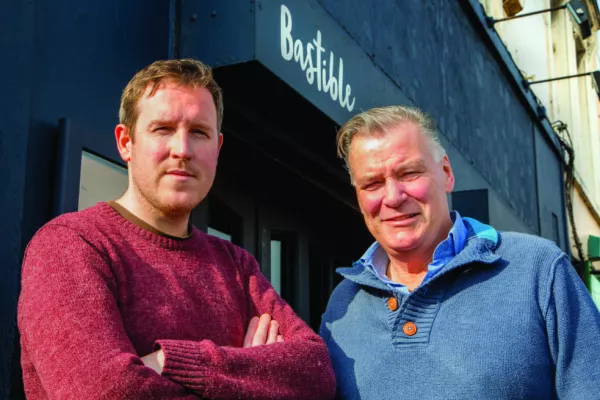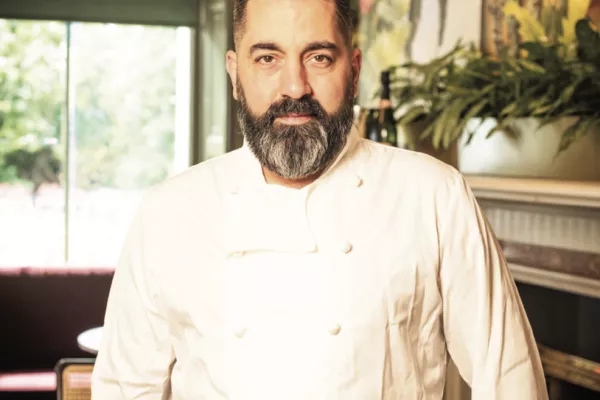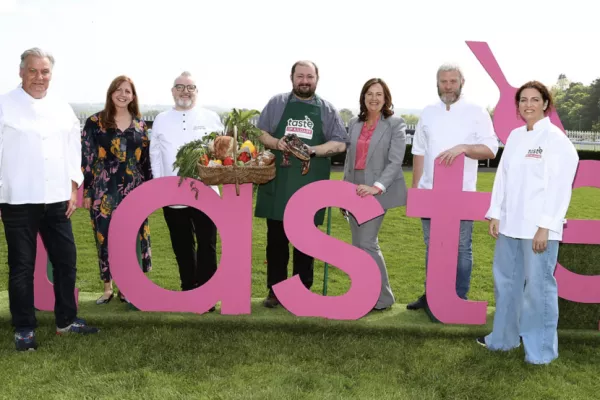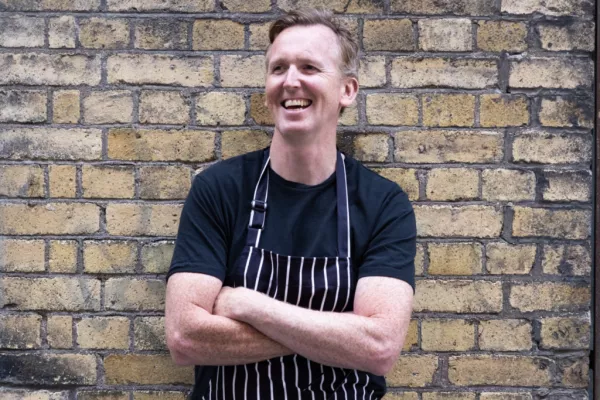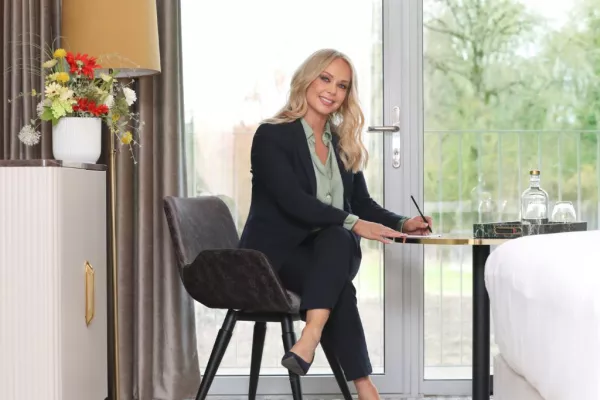Exclusively for Premium Plus and digital website members, Hospitality Ireland presents a piece originally featured in the April 2017 issue of our print publication in which Irish celebrity chef and proprietor of Dublin's L'Ecrivain restaurant Derry Clarke talks to Barry FitzGerald, co-founder of Dublin restaurant Bastible.
Don't currently subscribe to Hospitality Ireland? You can read the interview now if you sign up for a Premium Plus subscription, which is FREE for 30 days. Click the SUBSCRIBE button at the top of the page for details on how to sign up.
Derry: Still being quite young, can you explain how you got your start in the industry?
Barry: I started cheffing quite late. I studied a degree course at UCD and only really developed a passion for food while there. It was after finishing my degree, aged 22, that I started working in kitchens. My first job was working under Oliver Dunne at Mint Restaurant in Ranelagh. It was actually your head chef at the time, Stephen Gibson, who told me to check out Mint for work. I only spent six to eight months there, but I really enjoyed it. I got sucked into the buzz of the kitchen and haven't really looked back since. I was never going to be a 9-5 desk job guy, I don't have the attention span.
Derry: Following the completion of your degree, was there a moment in time when you decided you wanted to change course and become a chef?
Barry: I'm not sure. While in college I used to love inviting all my friends over and cooking a big feast for them. I think that was probably the beginning of my love of the act of hospitality, you know, getting pleasure from cooking for other people and showing them a good time. The meals I cooked for friends became more elaborate as time went on. Perhaps that is when the seed was sewn for a future career in hospitality. There were also a few visits to restaurants that stand out in my mind. In particular, my first visit to Mint and a visit to Restaurant Patrick Guilbaud.
Derry: Can you remember your first day in the kitchen working with Oliver Dunne at Mint?
Barry: I remember the early weeks being fairly tough. They took the piss out of me a fair bit - all in good spirits, I think. What you quickly realise is that only if your hands are working fast can you join in the conversations going on. The work always needed to get done quickly. I remember there was a sous chef working there, about my age, 23, and I looked up to him because of how fast he was at everything he did. Even after three months, I could see the improvement in my knife skills. Cooking isn't really rocket science. I wasn't a commis chef for long, maybe three months. I quickly progressed to cooking starters, et cetera. I think small kitchens like the one Mint had are the best training grounds, because you don't get hidden at the back.
Derry: You had a great teacher in Oliver Dunne. You must have learned a lot?
Barry: He's fantastic. He was 28 or 29 at the time and hungry himself. He was pushing for a Michelin star, which he eventually got with Bon Appetit. I think it's a good idea for any young chef starting out to work alongside a young head chef, like Oliver was at the time, who is at the top of their game. You learn a lot from people like that. I didn't really stay that long at Mint, which I kind of regret, but I got the travel bug and went to Australia for a year. It was something of a rite of passage to enjoy myself. I did a few stints in kitchens over there, but I still didn't really see myself as a full-time chef.
Derry: Any regrets leaving Mint when you were only really starting your training in the kitchen?
Barry: Perhaps. I was a bit slow to mature and get my head around doing some actual work. I was a bit of a messer when I was young. I don't think it was until I was finished that year in Australia and went to London to work that I started to knuckle down. I remember when I was 25 in London, still working as a commis chef, that a chap told me that I really needed to "start gunning it" if I was going to make a career out of it. I was working at the Michelin-starred Arbutus at the time. So I decided to put my head down and work hard. I spent three years with that company, learning every section of the kitchen and eventually becoming a sous chef.
Derry: The three years must have given you a very good base to move on from?
Barry: Absolutely. It gave me the confidence to walk into a new kitchen. Working for three years in a Michelin star kitchen stands to you. I also worked as part of the opening team for Anthony Demetre's other venture, Wild Honey, which won a Michelin star six months after opening. I really was thrown in the deep end there. Colin Kelly was the head chef and he didn't have a huge team. It was a steep learning curve. After only a couple of months, I was doing the sauces section and things like that.
Derry: Did you come home to Ireland after that?
Barry: No, I spent a few more years in London. Following three hard years at Wild Honey and Arbutus, I spent around six months at St. John restaurant under Fergus Henderson, who is a legend. It's a great restaurant with a superb philosophy, but it did have a bit of a holiday camp feel about it. I felt it was quite easy for me. The most important thing I took from my time there was his philosophy towards staff. It was a really great place to work. Everybody does a 40-hour week, and the staff all sit down together to eat most days.
Derry: Do you think if more restaurants did something similar, where chefs only worked 40 hours, more people would be attracted to working in the industry?
Barry: Absolutely. I think it has gotten better. The hours in Dublin are certainly better than in London, but I think there's still work to be done. If we could just find the means to pay staff a little bit more and reduce the hours they work, we'd certainly be able to attract more people into the industry.
Derry: In that case, our cost base would rise so we'd have to charge more on our menus. Are we sometimes too competitive for our own good?
Barry: I think you can use Bastible as an example for that. We charge €38 for a three-course meal, using great fresh produce. We have a team of four in our kitchen every night. Many people have told us we could charge more, but we want to offer value to customers.
Derry: You returned home from London and opened Bastible a year and a half ago. Given its location outside the city centre, has it become something of a "destination restaurant"?
Barry: Before returning home, I worked for two and half years at Fulham's one-star Harwood Arms gastropub, becoming head chef. It's where I met my now fiancée, Clare Marie, who I run Bastible with. When she became pregnant, we decided Dublin was a better place to raise a family. My first job back was head chef at Merrion Row's Etto. I guess since opening Bastible it has become more of a "destination restaurant" than we thought it would be. I think after we got a few good reviews, we've become something of a "destination restaurant". We are not far out from town. We get a mix of locals and others travelling especially to visit us, from all over really. I've to pinch myself sometimes over the fact that we are full most nights.
Derry: Bastible has already established itself on the Dublin dining scene in the space of 18 months. The room itself is modest, so the food must do the talking?
Barry: We wanted a simple space and we were lucky we were able to design it from scratch, as in, there was no kitchen at all, so we got to choose where it would be. We looked at the functionality of everything, so we have the bar beside the kitchen pass to help with the communication side of things. It just functions well. The restaurant sits 40 at once. On a busy night, we might do 60-65 covers. You're right, it's a simple room. I think some people, after reading the reviews, might have arrived expecting fine dining, but that's certainly not what we're about.
© 2019 Hospitality Ireland – your source for the latest industry news. Interview conducted by Derry Clarke. Click subscribe to sign up for the Hospitality Ireland print edition.
